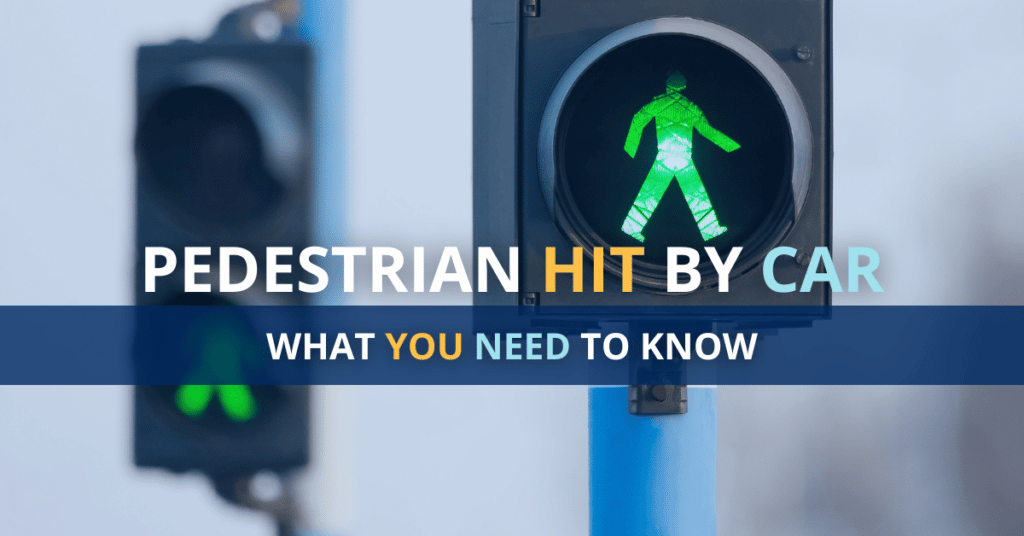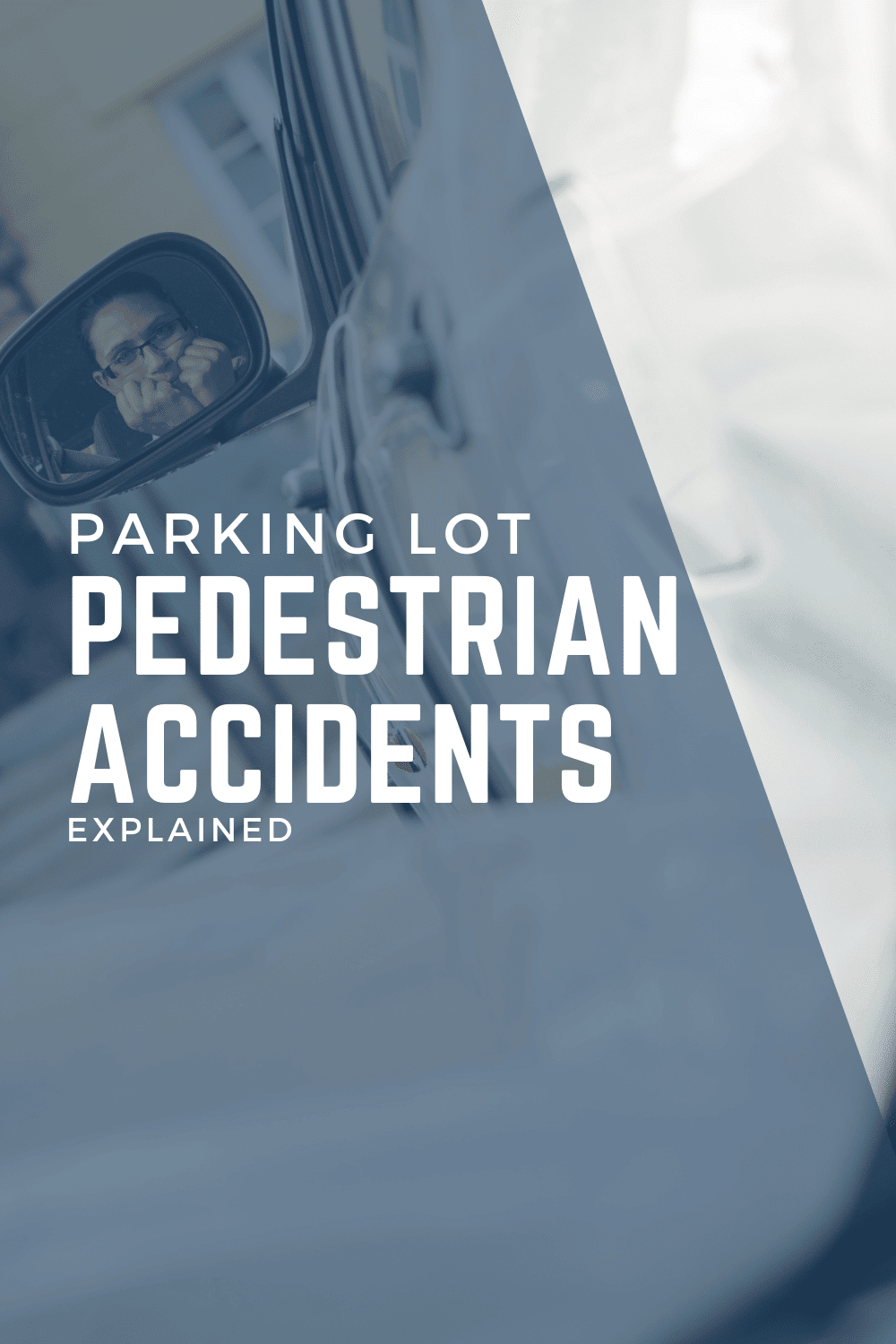Pedestrian Hit By Car In Michigan: Legal Rights Explained

A pedestrian who has been hit by a car in Michigan may be able to sue the at-fault driver who caused the accident for pain and suffering compensation. The injured victim may also be able to recover auto No-Fault insurance benefits to pay for medical bills and lost wages if he or she is disabled from work due to injuries.
Reaching a full and fair settlement for any Michigan pedestrian will depend on factors such as: (1) the nature and extent of the pedestrian’s injuries; (2) current and future medical needs; (3) the extent of lifestyle impairment; (4) allocation of fault; and (5) how much liability insurance and personal assets the at-fault driver has who hit the pedestrian.
To find out how much your pedestrian-accident case is worth and what a fair settlement would be, check out our Accident Settlement Calculator.
What happens if a pedestrian gets hit by a car in Michigan?
In Michigan, a pedestrian who gets hit by a car may be able to sue the at-fault driver to recover compensation for his or her pain and suffering. Additionally, the injured victim will be entitled to recover No-Fault benefits to pay for his or her medical bills and for lost wages if their injuries disable him or her from working.
What to do when a pedestrian is hit by a car in Michigan?
When a pedestrian is hit by a car in Michigan, by law the at-fault driver must stop at the scene and assist the pedestrian in securing medical aid. The driver must also provide his or her driver’s license and insurance information.
The person(s) hit by the motor vehicle should seek medical attention if he or she is injured. It is important to report all injuries to first responders and to the emergency room doctors. There likely will be insurance to pay for needed medical care, even if the person is uninsured. This is discussed in more detail below.
Can a pedestrian sue if hit by a car in Michigan?
A pedestrian who has been hit by a car in Michigan may be able to sue the at-fault driver for his or her injuries and for pain and suffering compensation from the negligent driver. In addition, Michigan’s auto accident law also allows an injured pedestrian to sue for what is called “excess” No-Fault benefits – these are economic losses that the injured pedestrian will suffer in the future or that exceed the PIP cap available to pay for medical bills, wage loss, and other No-Fault benefits. .
Additionally, the injured person(s) may be able to sue the assigned auto insurance company responsible for providing No-Fault insurance benefits, whether his own or the driver’s (see below) for any unpaid and overdue No-Fault benefits if the insurer of highest legal priority refuses to pay.
Pain and suffering compensation for a pedestrian hit by car
A pedestrian who has been struck by an automobile and injured may be able to sue the at-fault driver who caused the crash for pain and suffering compensation if he or she can prove: (1) the at-fault driver was negligent; and (2) the pedestrian’s injuries caused him or her to suffer a “serious impairment of body function” under Michigan’s auto accident threshold law.
A “serious impairment of body function” means that a person’s injuries have resulted in a serious impairment of an important body function which has affected the person’s general ability to lead his or her normal life.
A serious impairment of body function is the legal tort threshold that any pedestrian who is hit by a car in Michigan must meet in order to be able to sue for pain and suffering compensation and recover monetary damages for non-economic losses.
In a lawsuit for pain and suffering compensation, an injured pedestrian may also be able to recover “excess” No-Fault benefits which are the benefits that are not covered by applicable auto No-Fault insurance policy because of the medical coverage level that was chosen.
Importantly, a pedestrian does not need to prove a “serious impairment of body function” to recover economic losses and any “excess” No-Fault insurance benefits. But the at-fault driver’s negligence must still be proved in order for the injured victim who was hit by a car to get money for economic loss in Michigan.
About Michigan No-Fault benefits
In Michigan, a pedestrian who was hit by a car is entitled to recover No-Fault benefits, sometimes referred to as PIP benefits, from the responsible auto insurance company. These PIP benefits help pay for the pedestrian’s accident-related medical bills and lost wages if he or she is disabled from working. The pedestrian need not show the driver was 100% at-fault.
In order to recover the Michigan No-Fault benefits that a person is entitled to after being struck and injured by a motor vehicle, it is essential that he or she file an application for No-Fault benefits with the responsible auto insurance company within one (1) year of the accident.
Failure to file the application on time will disqualify the pedestrian from receiving No-Fault benefits and it will bar the pedestrian from suing for unpaid benefits.
The auto insurance company that will be responsible for paying a pedestrian’s No-Fault benefits will be the insurance company that by law is the highest priority to provide PIP benefits. The legal analysis for determining priority is as follows:
- Your own No-Fault auto insurance policy for your own personal motor vehicle in which you are the named insured. (MCL 500.3114(1); 500.3115)
- The No-Fault auto insurance policy that your spouse has on his or her motor vehicle. (MCL 500.3114(1); 500.3115)
- The No-Fault auto insurance policy that a resident relative who lives with you has on his or her motor vehicle. (MCL 500.3114(1); 500.3115)
- The Michigan Assigned Claims Plan will assign an auto insurance company to pay for your No-Fault benefits if there is no No-Fault coverage available to you through any of the other sources. (MCL 500.3115)
What is considered a fair settlement?
A full and fair settlement for a pedestrian who is hit by a car in Michigan will likely involve the following factors that insurance companies and personal injury attorneys use to determine settlement: (1) the nature and extent of the pedestrian’s injuries; (2) his or her present and future medical needs; (3) whether the pedestrian is disabled from working and if no longer disabled, the period of time missed from work; and (4) the effect on the pedestrian’s ability to lead his or her normal life.
Also, the at-fault driver’s insurance company, adjuster and liability coverage policy limits, as well as the amount of personal assets and collectibility, will play a significant role in arriving at a full and fair settlement.
All Michigan drivers are legally required to carry a minimum of $250,000/$500,000 in liability insurance coverage, although they have the option “to purchase lower limits” of $50,000 and $100,000. (MCL 500.3101(1); 500.3131(2); 500.3009(1)(a) and (b), (5))
In the event that the at-fault driver who hit a pedestrian was driving for Uber or Lyft or was the driver of a truck or commercial vehicle, then the minimum liability insurance coverage limits will be considerably higher.
Are you a pedestrian who was hit by a car in Michigan? Contact a Michigan Auto Law attorney now
If you or a loved one has suffered serious injuries when you were hit by a car as a pedestrian in Michigan and you have questions about your legal rights to pain and suffering compensation, economic damages and auto No-Fault insurance benefits, you can speak to an experienced pedestrian accident lawyer at (800) 968-1001 for a free consultation. You can also get help from an experienced auto accident attorney by visiting our contact page or you can use the chat feature on our website.






